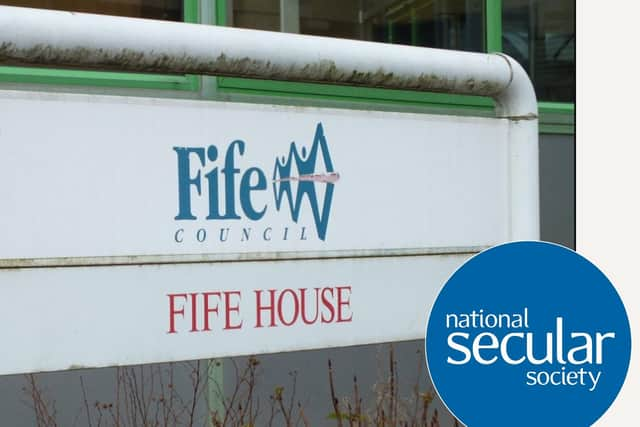Fife Council axes voting right of committees’ religious representatives
and live on Freeview channel 276
Fife is the third local authority this year to step back from the voting right which was established in the Local Government (Scotland) Act of 1973 in which each council had to appoint three unelected religious representatives to the committee.
Perth and Kinross led the way in 2019, followed by Borders Council, but Angus and East Lothian have opted to retain the status quo, with others delaying decisions until a later date. In May, Orkney and Highland Councils removed the voting right,
Advertisement
Hide AdAdvertisement
Hide AdThe move was backed by the National Secular Society, but opposed by churches including the Archdiocese of St Andrews and Edinburgh.


Fife’s religious representatives sit on the cabinet, and education scrutiny committees, and are also members of the panel for education appeals, and appointment committees. There have only been two occasions when one of them has cast their vote.
Councillor Atany Craik (Glenrothes West & Kinglassie, Labour) called for voting to be limited only to the education committee, but he was defeated 36-32 in a vote in favour of Cllr David Barratt (Inverkeithing and Dalgety Bay, SNP) who argued for a complete removal. Three councillors abstained.
The move came just six months after then issue was raised to decide on voting rights.
Advertisement
Hide AdAdvertisement
Hide AdCllr Craik described the move as a “bolt from the blue for no apparent reason” adding: “If there is a concern we should seek to allay not, not act in an arbitrary manner. The Secular Society has been pushing this for years - we should not bow to it, we should decide what is suitable.”He also said a decision to veto religious representatives; right to vote could be seen as “sectarian” adding: “We are inclusive organisation and cannot be seen to be anything else.”
But Cllr Barratt argued the vote was not about politics or religion - instead it was about democracy.
“The current set up is not democratic,” he argued. “People who are responsible for decisions are accountable to the public and judged by them. Allowing unelected representatives to have a vote undermines that process. I understand the historic context of the Catholic church in particular, but nothing was said about have voting rights. The representatives will retain a unique position of influence.”
Tory group leader, Councillor Kathleen Leslie (Burntisland, Kinghorn and Western Kirkcaldy) said the move was “a kneejerk reaction to fix something that doesn’t actually need fixed” adding: “Religious representatives bring a different take to discussions, If they chose not to vote, as the Church of Scotland appears to have decided, that is fine but it does not means they should lose the right to vote.”
Advertisement
Hide AdAdvertisement
Hide AdFife’s decision was described as “fantastic” by the Secular Society
Megan Manson, head of campaigns, said: "They are now the third Scottish council within the past two months to make this move. Momentum is clearly gathering across Scotland as more councillors realise that giving unelected religious appointees a vote is undemocratic and unequal. The Scottish government should take notice of the growing unpopularity of religious reps and work to revoke the law that requires them on councils in the first place.”
Comment Guidelines
National World encourages reader discussion on our stories. User feedback, insights and back-and-forth exchanges add a rich layer of context to reporting. Please review our Community Guidelines before commenting.